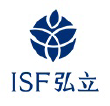Sai Weng’s Lost Horse and Hamlet: finding our blessings
Jun 5, 2020
In this final message at the end of the 2019-20 academic year, I find myself ruminating on the troubled state of the world at this point in time and what this might mean for us in the new year. I must confess that this is not an easy or comfortable task. It has been a ‘viral’ year in both the biological and social senses of the world. We are surrounded by the clamour of strident headlines, amplified by social media, each more sensational than the last; all vying for our attention, heralding crises and calamity. We find ourselves in a contrary world where the powerful appear to have taken leave of their collective senses, where leadership is mired in self-interest, and where the voices of the wise are muted. It seems to be the dawning of an age of transition, in which the tectonic plates of global human socio-political structures are shifting, bending, and realigning. It is easy to feel powerless and vulnerable in such times as these.
Rest assured, the tone in this week’s message is not entirely dark!
When faced with dire circumstances such as these, I am encouraged by the wisdom of those who in past ages faced their own days of darkness and despair and found within the resolve and direction to move forward.
In particular, I am inspired this week by two quite different, yet aligned, quotes from the past; one is a well-known Chinese proverb, the other a philosophical gem from the Bard:
塞翁失馬,焉知非福 (Is the loss of Sai Weng’s horse a blessing in disguise?) – Chinese Proverb.
“…for there is nothing either good or bad, but thinking makes it so.” – Shakespeare, Hamlet, Act II, Scene ii.
In the case of the lost horse, Sai Weng’s neighbour indulges in schadenfreude at his misfortune, which turns out to be a blessing, as Sai Weng’s son is ultimately spared a violent death in battle. From this, we learn the importance of perspective and patience, as not all things that appear at first glance to be disastrous remain so in the longer term – it is all a matter of timing. Shakespeare’s Hamlet laments on his ‘imprisonment’ in Denmark, acknowledging that his detention is the creation of his own mindset. We subjectively construct our own prisons out of daily circumstances that are essentially neutral. Constraints may be self-inflicted. Some of the demons that haunt our dreams and waking hours are of our own making.
Following the resumption of classes last week, I visited classrooms and listened to the uplifting anecdotes shared by colleagues about the things they have learned through the disruptions this year that could not have been learned any other way. I observed changed practices in classrooms that reflect some new realities, such as the need for social distancing, but at the same time show a flair for innovation and support for learning. I saw evidence of remarkable student achievement in assessment tasks shaped by the constraints of school closures. I marvelled at the gentle humour of our students as they have found quirky ways of expressing their own experiences while locked out of the classroom. If one has an ear to hear them, the voices of many can be heard in our community, optimistic, hopeful, ready to move on, with resolve to face whatever is coming next.
In the face of such positive energy and infectious enthusiasm, the shouting headlines recede a little, the grind of political blocs jockeying for position becomes more muted, and the threat of apocalyptic change in our part of the world seems to diminish somewhat. While change appears imminent, things are what we make of them, and blessings are often cleverly hidden amongst troubling tidings.
Please enjoy the change of pace over summer! Stay safe and healthy until your return to us in August!
Dr. Malcolm Pritchard
Head of School
